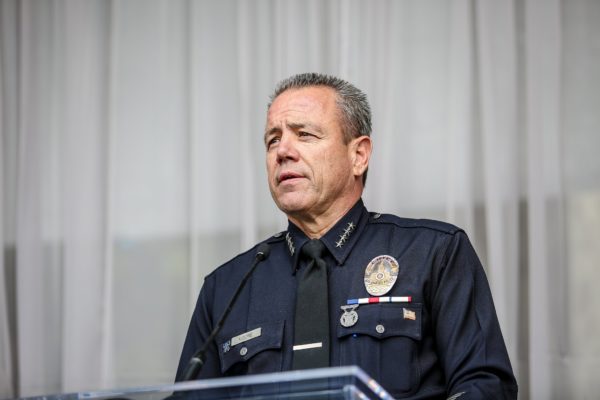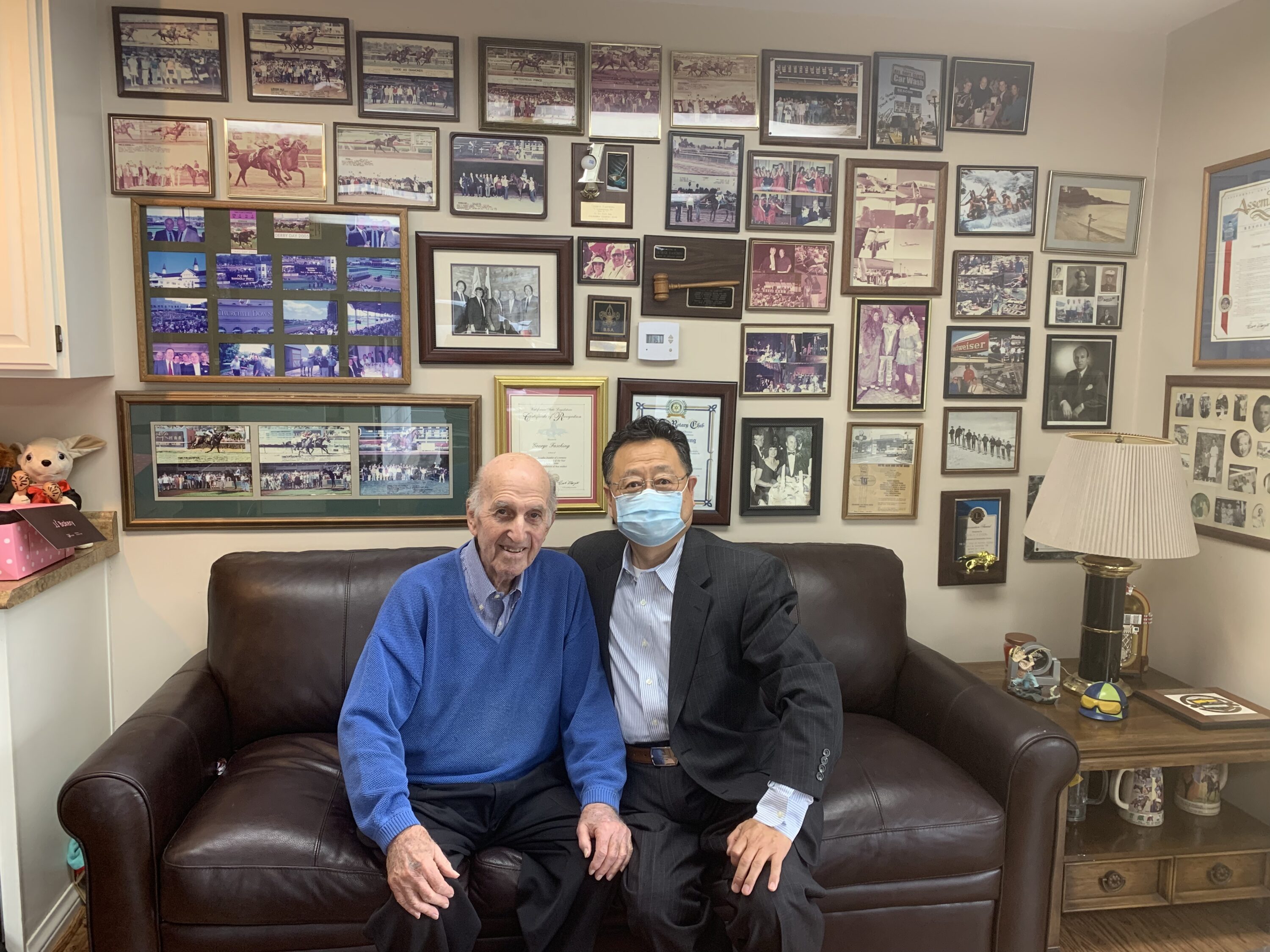A former senior lawyer in the Los Angeles City Attorney’s Office pleaded guilty Tuesday to a federal charge connected to lawsuits involving the 2014 Department of Water and Power billing system debacle.
Thomas Peters, 55, of Pacific Palisades, entered his plea to one count of aiding and abetting extortion.
Sentencing was set for Aug. 2, but the hearing could be postponed, according to the U.S. Attorney’s Office.
Peters admitted threatening to fire one of the city’s outside attorneys unless that lawyer paid $800,000 to a person who was threatening to expose incriminating information about the city’s handling of the DWP litigation.
The defendant’s plea agreement is the fourth prosecutors have obtained in the investigation involving the period in 2014 when DWP faced multiple class-action lawsuits over the flawed rollout of a new billing system — and the city was shoring up its response.
Peters was chief of the litigation branch of the City Attorney’s Office, which had hired Paul Paradis, a New York-based lawyer, and Paul Kiesel, a Beverly Hills plaintiffs’ attorney, as outside counsel in an anticipated suit against the vendor blamed for the billing mess.
The city’s lawsuit, filed in March 2015, alleged that the vendor had caused hundreds of millions of dollars in damages. The city agreed to pay Paradis and Kiesel nearly 20% of any recovery in the litigation — meaning the two lawyers stood to gain tens of millions of dollars, prosecutors said.
At the time, Paradis simultaneously represented Antwon Jones, a DWP ratepayer suing the city and the department for billing overcharges. By January 2015, the City Attorney’s Office became aware that Paradis was simultaneously representing both the city and Jones.
In April 2015, an Ohio attorney whom Paradis had enlisted to purportedly represent Jones filed a Paradis-drafted lawsuit against the city and DWP. Paradis secretly agreed to accept — and eventually did accept — an illegal kickback of nearly $2.2 million for steering the lawsuit to the Ohio attorney. Paradis has agreed to plead guilty to a bribery charge.
By the spring of 2015, Peters was informed by a senior City Attorney’s Office official that Jones v. City was a friendly lawsuit intended as a vehicle for the city to settle globally — and on its own terms — all claims related to the billing launch. Peters was also informed that Paradis had referred the case to the Ohio attorney for that purpose, and that the senior city attorney official had directed and authorized this strategy before the complaint was filed.
Despite objections from the city’s counsel that a proposed $13 million attorney fee award was unjustifiably high, the city agreed to the fee proposal, according to federal prosecutors.
In July 2017, a Los Angeles Superior Court judge issued a final approval of the $67 million settlement agreed to by the parties in the Jones suit, including $19 million in plaintiffs’ attorney fees.
According to his plea agreement, on Nov. 16, 2017, Peters learned from Paradis that a former long-time employee of Kiesel’s had taken documents from the firm that would reveal the city’s secret agreement with the Ohio attorney in the Jones lawsuit. The unidentified person threatened to reveal the documents if Kiesel did not pay her more than $1 million — later dropped to $800,000 — to return them.
During a meeting with Kiesel, Paradis and Paradis’ law partner to discuss the threats, Peters ordered Kiesel to pay the monetary demands, or potentially be fired as the city’s special counsel in the vendor litigation.
Peters did not have the direct authority to fire Kiesel, prosecutors said.
The following month, in December 2017, Peters met with other senior members of the City Attorney’s Office and updated them on the status of the threats. Prosecutors said Peters was told to take care of the situation, and he agreed to do so.
Eventually, a friend of Kiesel — acting at the attorney’s direction — approached the unidentified woman and asked to reinitiate negotiations of her monetary demands. At dinner shortly afterward, Kiesel agreed to pay $800,000 to the woman to prevent her from releasing the documents, according to the U.S. Attorney’s Office.
In May 2019, after Peters had resigned from the City Attorney’s Office, he received an inquiry from the office asking what he recalled about the 2017 payment to the woman. Knowing that the office was probing whether Peters would, if asked by someone outside the city, reveal the extortion or the underlying collusion, Peters falsely replied that the matter had only involved an employment dispute.
According to his plea agreement, Peters made it known that he would continue to conceal the extortion and collusion by intentionally omitting from his reply that the “settlement” had involved Kiesel paying $800,000 in extortion money to conceal the city’s collusion, that Peters had directed Kiesel to satisfy the woman’s demands or be fired as special counsel, and that Peters had discussed the situation with and received direction from senior members of the City Attorney’s Office.
City Attorney Mike Feuer said earlier this year that he was “furious and disappointed beyond words that someone I hired and placed faith in would commit this breach of trust — of the public, of my office and of me personally.”
Feuer said that nearly three years ago, he asked for and received the resignation of Peters because of “unrelated past conduct, but at no time until today was I aware of Mr. Peters’ illegal actions. With his admission of wrongdoing we finally know the truth of what happened.”
Feuer said that “the fact remains that I hired Mr. Peters and put him in a position of great responsibility. I own that choice. As with every decision in my office, the buck stops with me. Now it is my responsibility to lead our office, with hundreds of dedicated public servants, to continue to be a force for good in our city.”
Despite Feuer’s claims, NBC4 reported this week that the now-mayoral candidate’s calendar shows that he was scheduled to attend the December 2017 meeting when the extortion issue was discussed.
“The city attorney attended multiple meetings over the years about the PWC/DWP litigation, and it appears from his calendar that he attended one on December 1, 2017,” Feuer’s spokesman Rob Wilcox told NBC4 in a statement. “The city attorney has no specific recollection of that meeting — more than four years ago — but certainly was not informed at that time, or any time, of any criminal malfeasance.”
Responding to the revelation about Feuer’s calendar, Jamie Court — president of the community advocacy group Consumer Watchdog — issued a statement calling for Feuer to resign.
“It’s inconceivable that Mike Feuer was in the room when an order was given to pay off an extortionist to cover up the city attorney’s misconduct and he didn’t remember it,” Court said. “The calendar entry corroborates a mountain of circumstantial evidence pointing to Feuer’s involvement. He has disgraced the office of city attorney and it’s time for him to resign.”
In addition to Peters and Paradis, federal prosecutors have obtained plea agreements from David Wright, 62, of Riverside, former DWP general manager, and David Alexander, 54, of Arcadia, a former senior cyber official at the utility, stemming from corruption at the department.







